All Stories
-
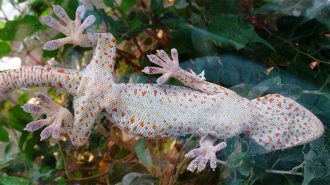 Life
Life50 years ago, scientists thought they knew why geckos had sticky feet
50 years ago, scientists thought gecko feet had suction cups that allowed the animals to stick to surfaces. Today we know tiny hairs do the job.
By Kyle Plantz -
 Humans
HumansA 3.8-million-year-old skull reveals the face of Lucy’s possible ancestors
A fossilized hominid skull found in an Ethiopian desert illuminates the earliest-known Australopithecus species.
By Bruce Bower -
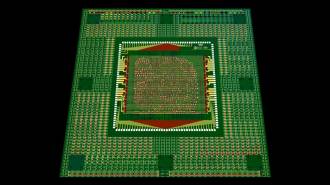 Tech
TechA chip made with carbon nanotubes, not silicon, marks a computing milestone
Silicon’s reign in cutting-edge electronics may soon over. The carbon nanotube could be its successor.
-
 Humans
HumansTextile archaeologists use ancient tools to weave a tapestry of the past
Using tools leftover from ancient spindles and looms, textile archaeologists are starting to understand the fabrics of the past.
By Amber Dance -
 Humans
HumansA historic opioid trial highlights what we know about the deadly drugs
An Oklahoma judge finds that Johnson & Johnson must pay $572 million to the state for the company’s role in the epidemic.
-
 Space
Space5 of Jupiter’s newly discovered moons received names in a public contest
Astronomers first announced the discovery of the worlds in July 2018, and have now named them for goddesses and spirits of Greek and Roman mythology.
-
 Life
LifeFecal transplants might help make koalas less picky eaters
Poop-transplant pills changed the microbial makeup of koalas’ guts. That could allow the animals to adapt when a favorite type of eucalyptus runs low.
-
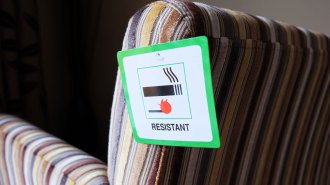 Chemistry
ChemistryPlant-based fire retardants may offer a less toxic way to tame flames
Flame retardants created from plant materials could be less harmful to the environment than traditional flame-smothering chemicals.
-
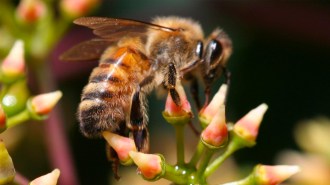 Neuroscience
NeuroscienceHoneybee brain upgrades may help the insects find food
Changes in honeybee neurons may help the insects decode their fellow foragers’ waggle dances.
-
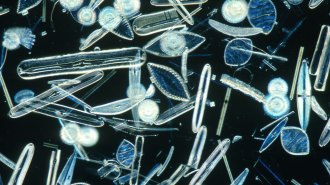 Earth
EarthOcean acidification could weaken diatoms’ glass houses
Ocean acidification may lead to smaller, lighter diatoms in seawater, which could also shrink how much carbon the tiny ocean algae can help sequester.
-

You can tell a magazine by looking at its cover
Editor in Chief Nancy Shute discusses how Science News created its cover about a rare autoimmune disorder.
By Nancy Shute -

Readers marvel over moon mementos and more
Readers had questions about items left on the moon during the Apollo missions and more.